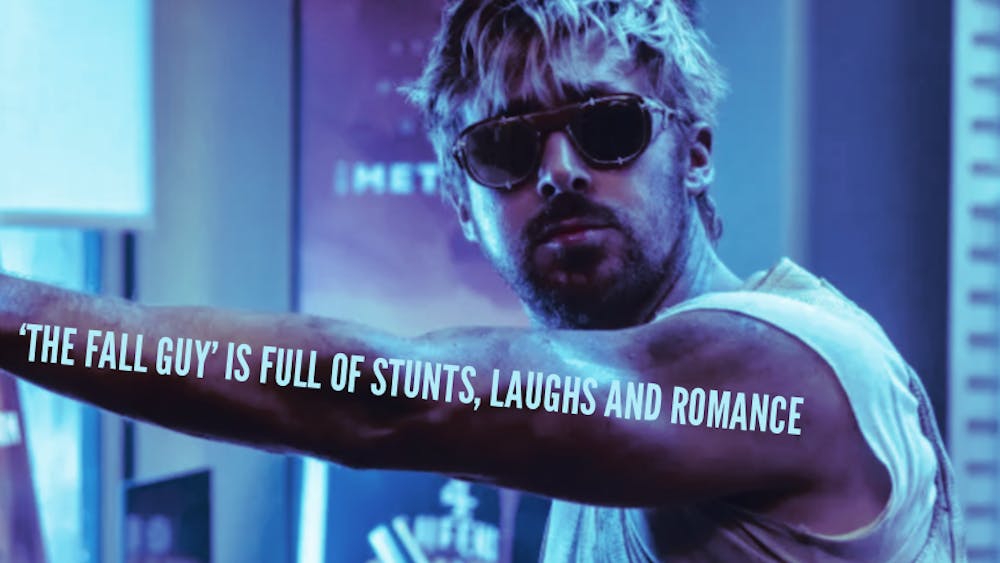Do you remember the good old careless days of "screaming and running through the yard?" Those are the days that the Montreal-based band Arcade Fire reminisces about in their new LP The Suburbs.
Critically praised since their epic, orchestral, emotion-ridden 2004 debut album "Funeral," the indie rock septet's music is often powered by seemingly ever-crescendoing dynamics. Their 2006 sophomore album "Neon Bible," replete with religious undertones, experienced breakthrough commercial success, debuting at No. 1 in Canada and Ireland and number two in the United States.

Not unlike its predecessors, the Montreal-based band's new album takes a few listens to digest, but that's what makes its music so brilliant. However, while previous albums focused more on passionate instrumentation and vocals, "The Suburbs" takes on a more adult sound, controlled and atmospheric in its scope. Always grandiose in lyrical and instrumental content, the band's fronting husband-and-wife duo Win Butler and Regine Chassagne write about what they know, in this case, the nostalgia of growing up in the suburbs.
Will Butler, brother of lead singer Win and synthesizer, bass player and percussionist for the band, said the inspiration behind the new album's themes comes from his and his brother's upbringing in the Woodlands near Houston. He said on ArcadeFireTube: "Both [Win and I] grew up in the suburbs of Houston and we, sort of, wanted to directly address that, as opposed to pretending we were tough kids from the inner city or hobos who rode the rails … [and] there's always pressure to do that."
The album's title track and opener, "The Suburbs," introduces the LP's main theme, that many people romanticize the wasted time of youth and in turn justify wasting time in adulthood: "Kids wanna be so hard / But in my dreams, we're still screaming and running through the yard." It's an album about nostalgia for childhood but also a stinging critique of adults' romanticism of youth.
This same theme of wasted youth is seen throughout the rest of the album in tracks like "Rococo" in which a chamber pop sound contrasts with Butler's singing: "Let's go downtown and talk to the modern kids / They will eat right out of your hand / Using great big words that they don't understand." The lyrics target and seemingly admonish Arcade Fire's own audience, the hipster who is more concerned with following trends than genuinely understanding the world that surrounds him.
Many an Arcade Fire joke has revolved around Butler's repetitive use of "the kids," and this thematic redundancy is certainly seen throughout "The Suburbs," in songs like "Month of May," a tune that channels 1980s polished punk rock with an upbeat driving percussion and the lyrics: "Now the kids are all standing with their arms folded tight."
The beginning staccato, minor key piano chords of "We Used to Wait" tells a story about the anxiety of the relentless pace of everyday life. While people used to lose a grasp on their dreams for the reality of reliable office work to pay the way, Butler sings about the lack of reliability even in office work with the state of the economy ("I was left standing in the wilderness downtown"). In spite of the harsh message, Jeremy Gara's steady drumming and Butler's falsetto vocals offer some of the passion that Arcade Fire is known for.

While Butler leads the vocals throughout most of the LP, Chassagne's impassioned singing can be heard on tracks like "Empty Room" and "Sprawl II (Mountains Beyond Mountains)," a disco-influenced track with an abundance of synthesizers, high-pitched yet emotional vocals and fairly literal lyrics, "Sometimes I wonder if the world's so small / That we can never get away from the sprawl. / … / Dead shopping malls rise like mountains beyond mountains / And there's no end in sight / I need the darkness, someone please cut the lights."
Win Butler, lead singer and main songwriter behind the band, claims that the new album draws influences from Depeche Mode and Neil Young, adding that he wanted the LP to sound like "the bands that I heard when I was very young and wondered what those crazy noises were," according to a July interview with NME Magazine.
With not quite as much passion but the same fluidity as "Funeral," Arcade Fire manages to make the story of the suburbs, one usually doused with trivialities, a tale of epic proportions.












